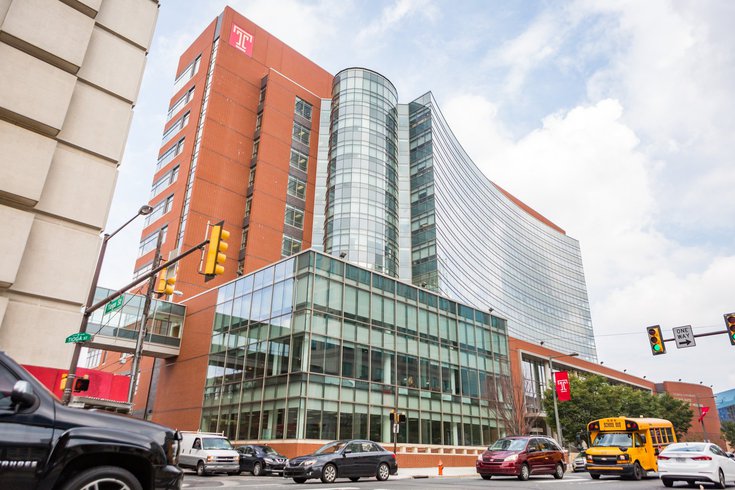
May 05, 2020
 Thom Carroll/for PhillyVoice
Thom Carroll/for PhillyVoice
Temple Health is investigating gimsilumab as one of many potential therapy candidates for COVID-19. Above, the Lewis Katz School of Medicine.
Temple University Hospital has teamed up with several U.S. hospitals to investigate the potential of intravenous gimsilumab to reduce lung injury in patients with severe COVID-19.
Gimsilumab is an antibody that hinders the growth of a protein that plays a key role in autoimmune diseases in which the immune system attacks the body by mistake.
That protein, known as granulocyte-macrophage colony-stimulating factor, or GM-CSF, appears in high concentrations in the blood serum of COVID-19 patients, according to data from China. And it is believed to contribute to the hyper-inflammation seen in the lungs of COVID-19 patients with lung injury or acute respiratory distress syndrome.
ARDS is a potentially fatal inflammatory lung injury that reduces the flow of oxygen to the lungs. It often requires patients to receive mechanical ventilation.
The hope is that gimsilumab, manufactured by Roivant Sciences, can reduce the hyper-inflammation. The so-called BREATHE trial aims to determine that.
"Emerging evidence suggests that GM-CSF may contribute to clinical worsening in COVID-19," said Dr. Gerard J. Criner, director of the Temple Lung Center.
Criner is the principal investigator at Temple, which last month treated the first patient enrolled in the study. The trial is sponsored by Roivant Sciences.
"Gimsilumab does not act on SARS-CoV-2 directly, but it helps bide time for patients by decreasing injury to the lung," Criner said.
Early data on gimsilumab from non-clinical trials and two clinical studies, including a four-week Phase I study in healthy volunteers, has been promising. The treatment appears safe to use, with little side effects.
The BREATHE trial is expected to enroll 270 patients with COVID-19 and clinical evidence of acute lung injury or ARDS. The patients are randomized to receive either gimsilumab or placebo.
Researchers want to determine how gimsilumab effects incidence of mortality by day 43. They also are collecting data on the use of mechanical ventilation and the number of intensive care unit and inpatient hospitalization days.
Gimsilumab also has been studied for its potential use in patients with cancer and autoimmune diseases like rheumatoid arthritis and multiple sclerosis.
It is one of various treatments being tested as possible COVID-19 therapies. Others include nitric oxide – the gas that led to Viagra, plasma donations from COVID-19 survivors, and drugs like hydroxychloroquine and remdesivir.